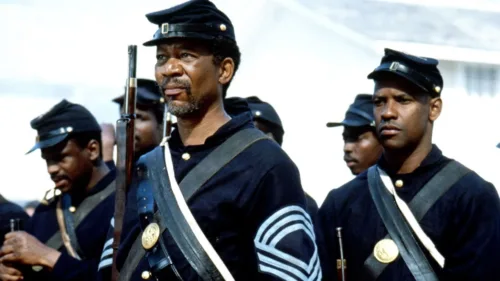Hello, I am Ife Olatunji and I have been going to, volunteering at, working with, and programming for film festivals all my life. For the past eight years, I have hosted my own film festival, Collected Voices, and I have learned a few things about the independent film industry. I am often asked about best practices for emerging filmmakers and producers. I thought I would share some of the questions I am asked most, and my advice on how to handle getting your independent project out there.
1. Why is a film festival plan important?
Getting started in filmmaking can be difficult, but the ultimate goal is to create a story that you can share with others. That starts with identifying your audience and creating a strategy to distribute your film. Today, there are many options to share your film online, but film festivals still remain an important opportunity to be seen by a wider audience, or acquired by a major company. Film fests and contest submissions can be expensive, so it is important to pick festivals that cater to your audience or subject matter. Receiving official selection laurels, four-walling or official online screenings, and awards can boost your film’s presence and potential to be purchased by a network, or distribution company. It’s essential that you develop a potential fest schedule, and pre-determine when you will complete your submission or film festival season. If you are lucky, you can sell your film. But in case you don’t, it’s important to know when to throw in the towel.
2. We have created a budget, but how do we get money to produce it?
Creating a realistic budget is an important step in completing and distributing your film. I learned the hard way like many filmmakers, of paying for films myself. But this can be limiting if you know you need to hire a camera, light and sound crew, make-up artist, or union actors. No matter the size of your project or budget, you should practice fundraising as soon as you finish your treatment. You should create a pitch deck, and practice your two-minute elevator pitch with anyone who will listen. Documentaries are primarily funded through grants, fellowships, and institutions. Narrative films or episodics are often eligible for the same grants but are typically funded by private investors, or media companies seeking content to purchase.
You can always crowd-fund or conduct donation campaigns, which can help build your audience. I suggest a different fundraising campaign (and platform) for each phase of your production. People want to see your progress as you go, and breaking up your fundraising goal, can help to make it more obtainable. These also give you an opportunity to refine your campaign message and share regular updates, sizzle reels, and demos from your film. Filmmakers wear many hats, and the further into their careers the more they learn what they have to offer to the industry—i.e. they hustle! To make your films, sometimes you teach film, you work for network TV or a media company, sell t-shirts, pins, photographs, editing lessons, rent out production space, and anything else necessary to produce your films.
3. When should I try to get distribution?
As an independent artist, you may need to work on a few projects or short films to demonstrate the style and direction you would like to execute. If you think you have a project that is ready for distribution, then start thinking about your plan as soon as pre-production research and development. This may influence how you begin fundraising or getting private investors. If you have strong partners in distribution from the start of development, you will have their support throughout your project, and their influence in getting your film to the right places.
4. What is a good distribution deal?
This is pretty subjective and depends entirely on the type of project you are producing. Beyond having an experienced producer, distribution partner, and film fest schedule, it is imperative to have a lawyer or legal counsel to advise in your best interest. However, the general objective is to cover any past or future expenses, while still retaining some original rights. Make sure your Director/Producer fees are included!
5. I have a finished film, what should I do to distribute it now?
Finished films can still be acquired by the likes of Hulu, Netflix, and HBO, but you will need to get the best festival or venue for your premiere. If you have a finished movie, I suggest starting with a film fest, and a theatrical screening for your local film press. Your local film community is a great resource to increase your visibility. Hosting your own private screenings for film critics and programmers allows an opportunity for Q & A and more in-depth conversations about your film. You can also contact your local TV networks or PBS station about directly programming your show or film. There are now Video on Demand online catalogs and independent streamers looking for content, willing to pay-per-view rates. Of course, you should always have a lawyer review potential contracts to be sure they are in your best future interest. Lastly, you can always self-release your project on user-generated media sites like YouTube, Vimeo, or TikTok. At the end of the day, what you distribute, is always about the next project you would like to produce. So share what you have. You never know who might be watching, and what they may offer you next! Some of our greatest modern producers started online: Issa Rae, Quinta Bronson, need I say more!
If you are just starting filmmaking, be prepared to make your first few projects entirely on a shoestring budget, or even from your own pocket. But once you have a few projects or episodes under your belt, don’t be afraid to take some time away from filmmaking, to focus on your fundraising and distribution strategies for your next project!











